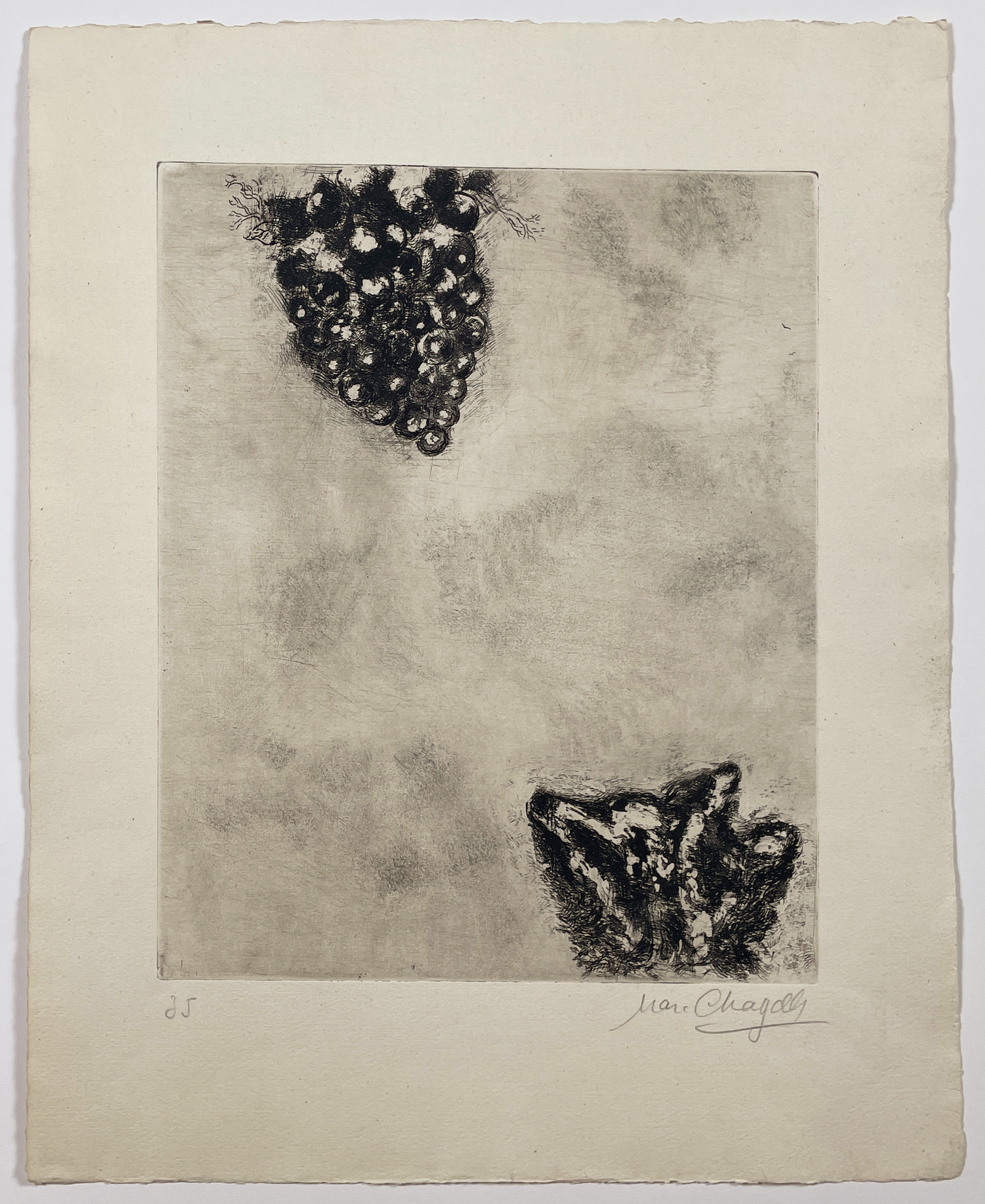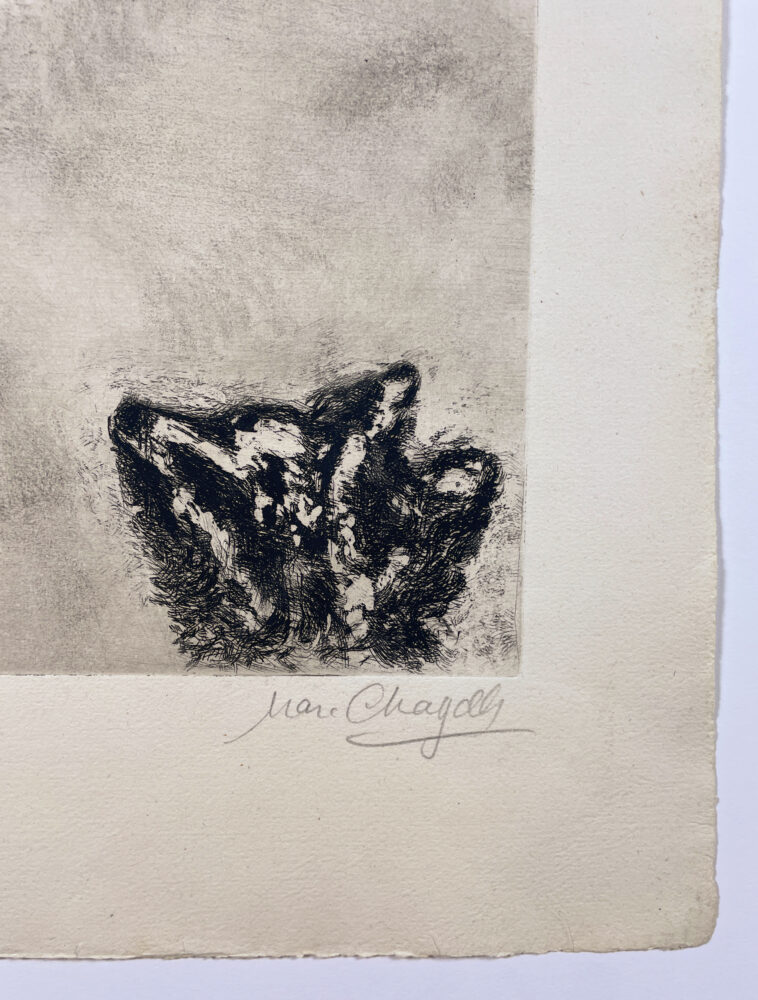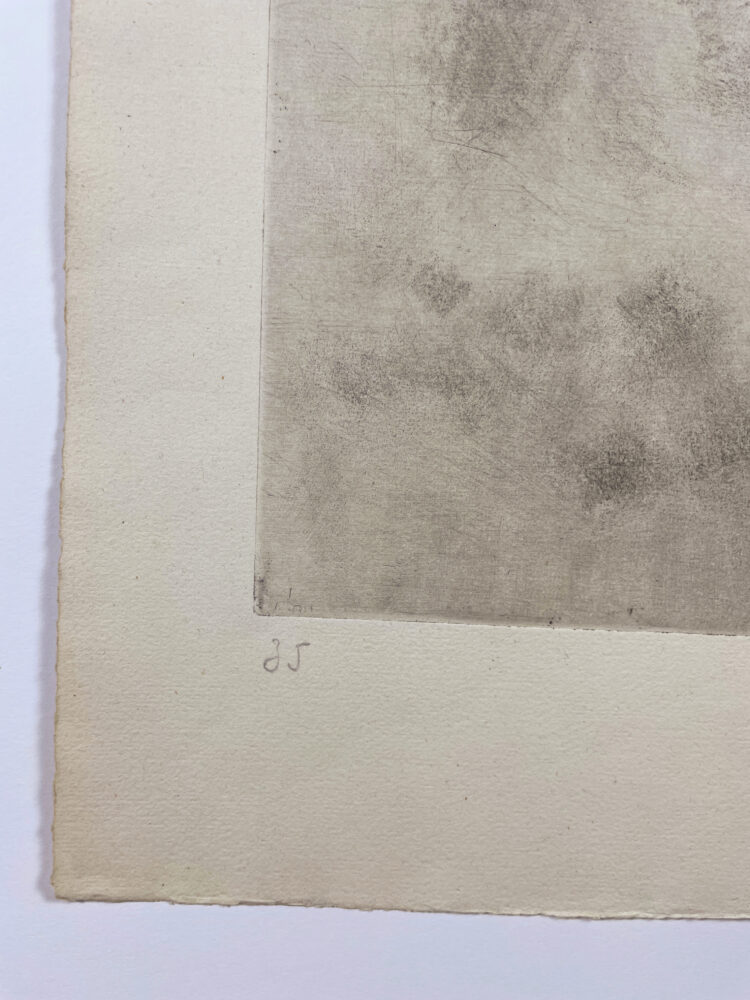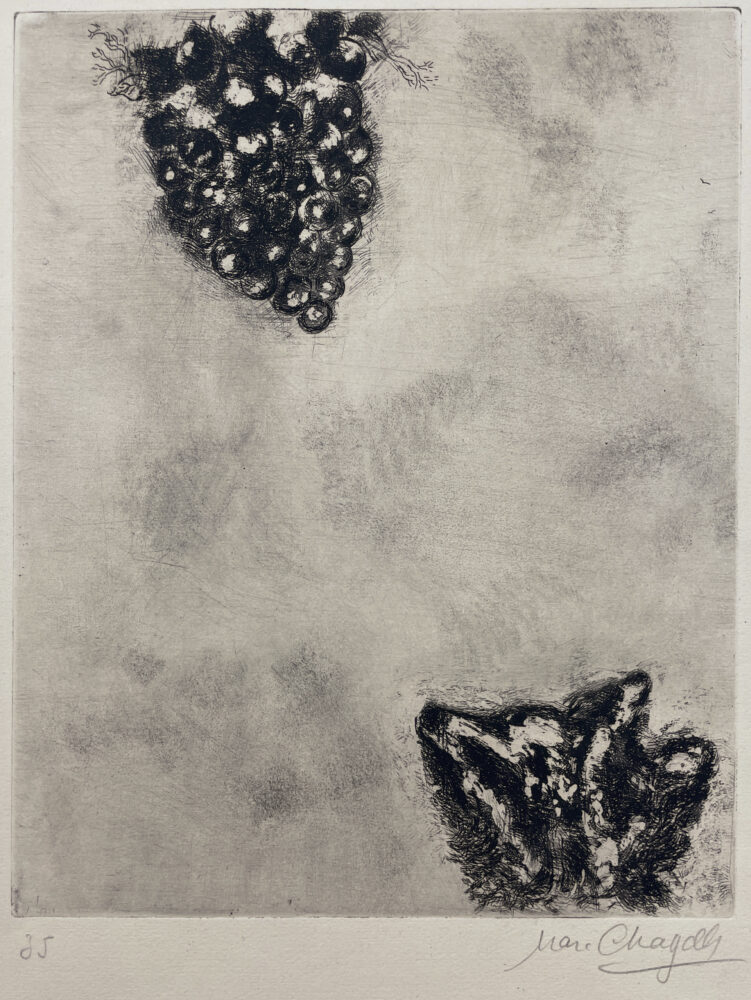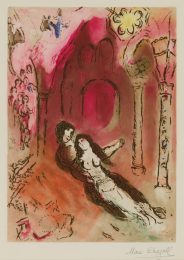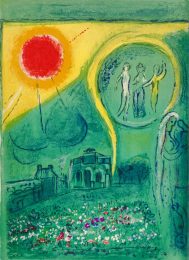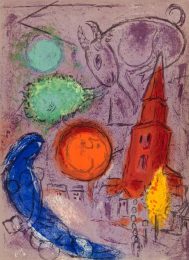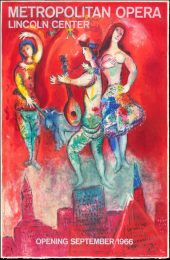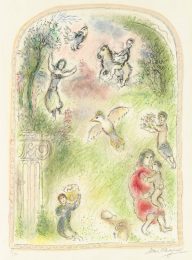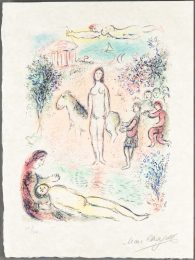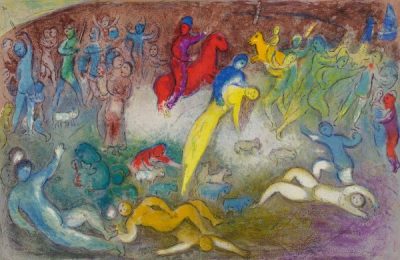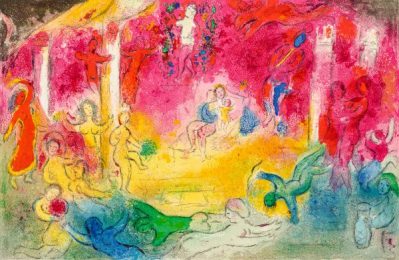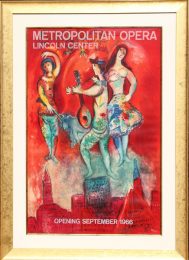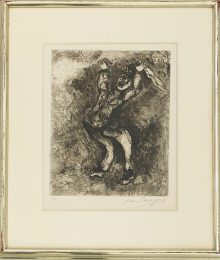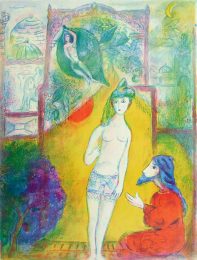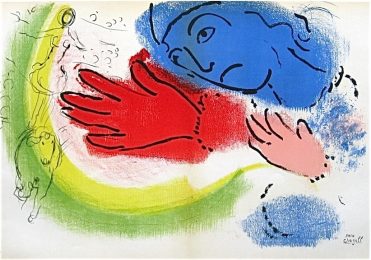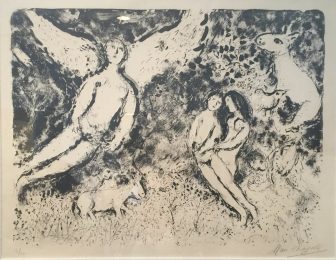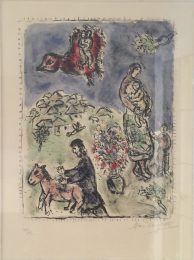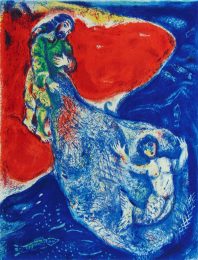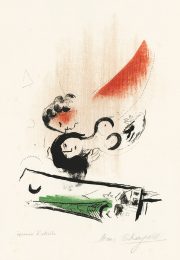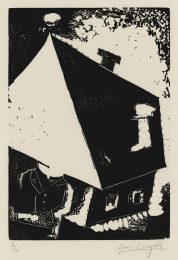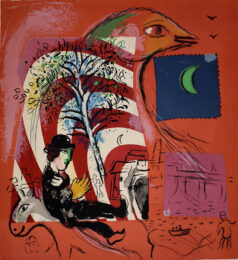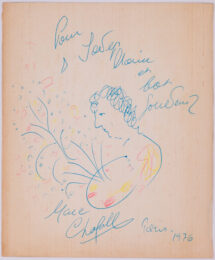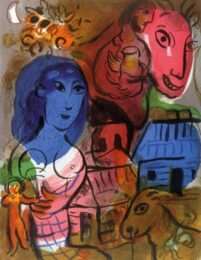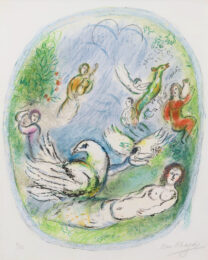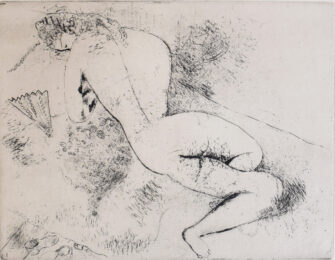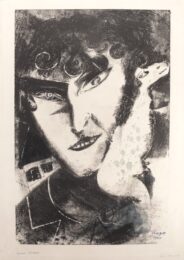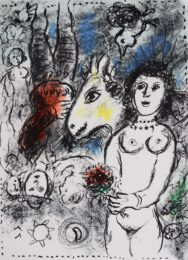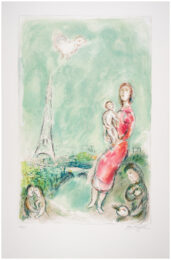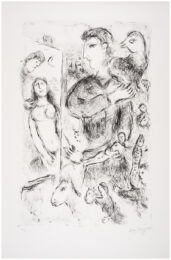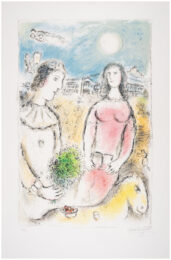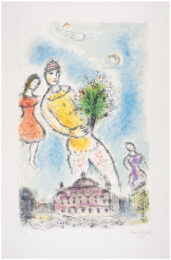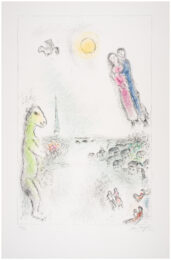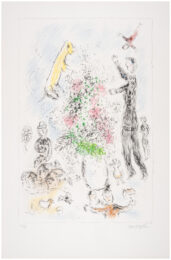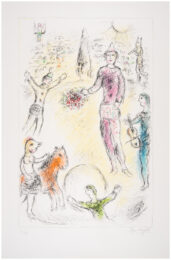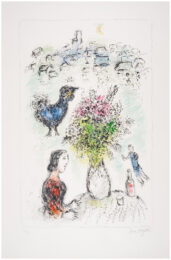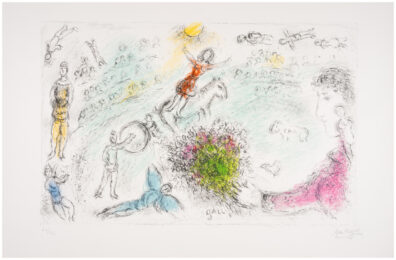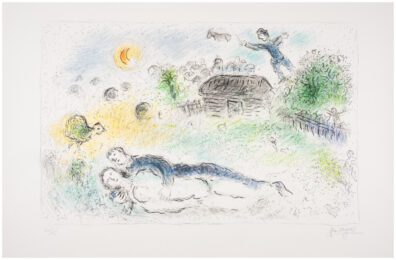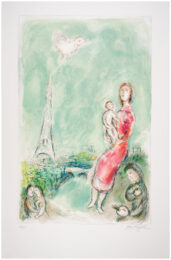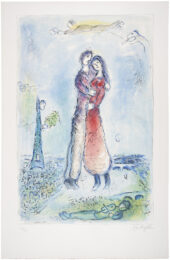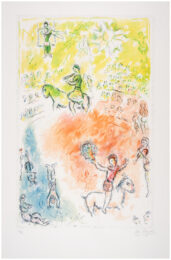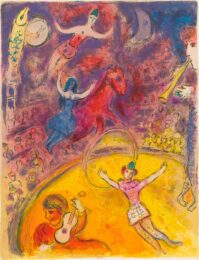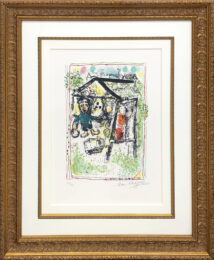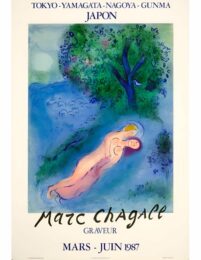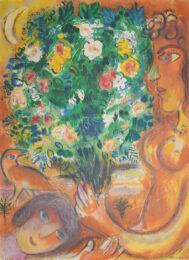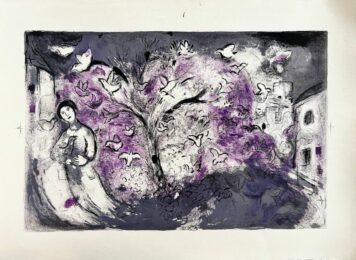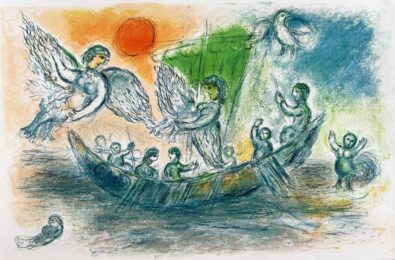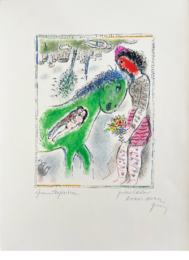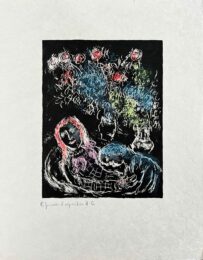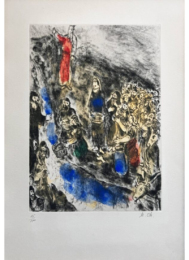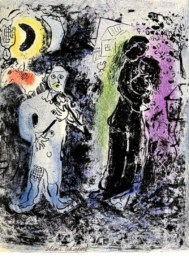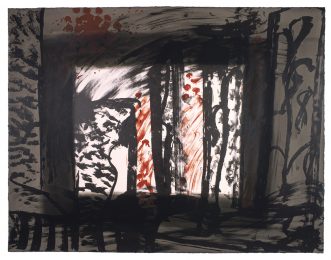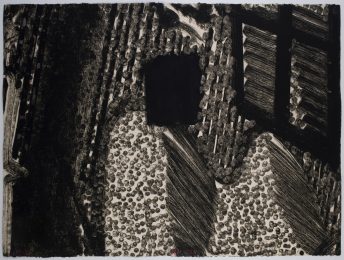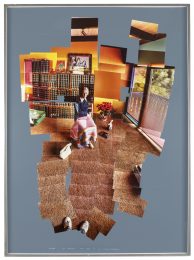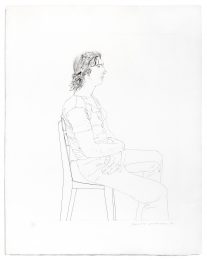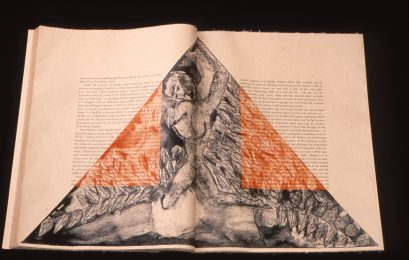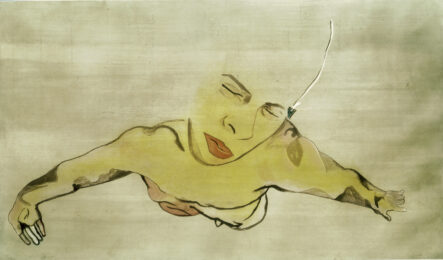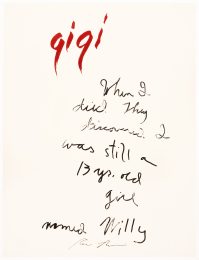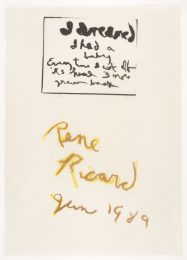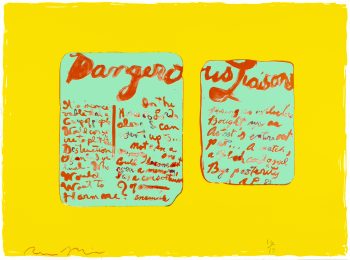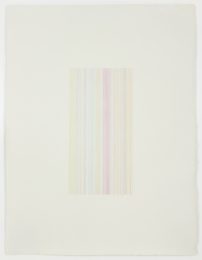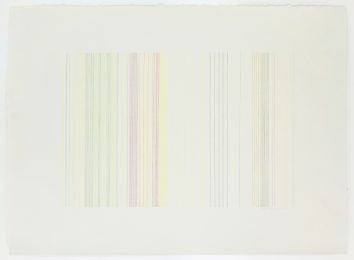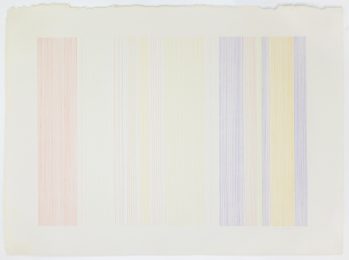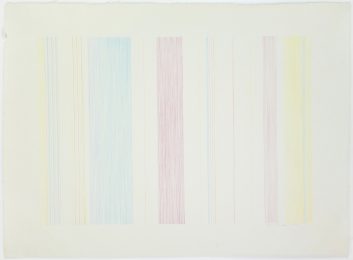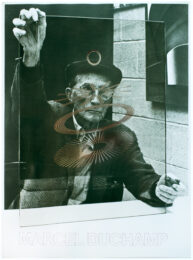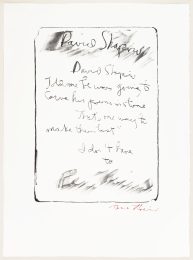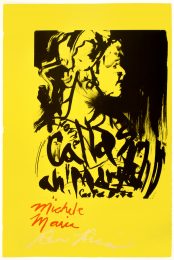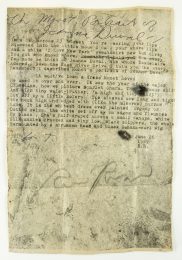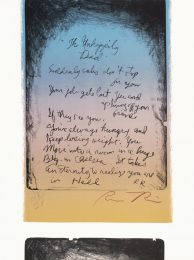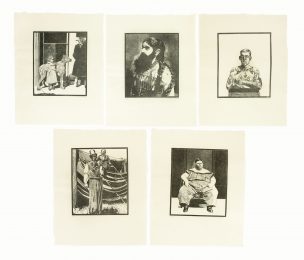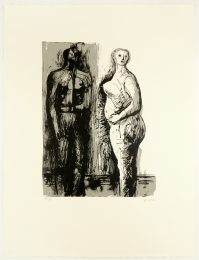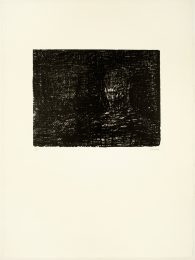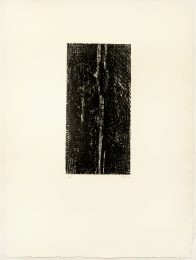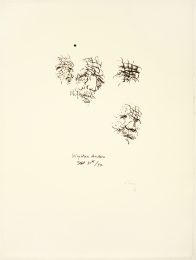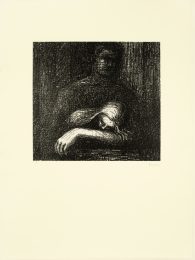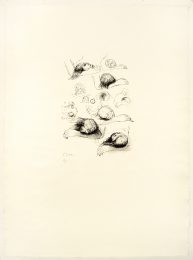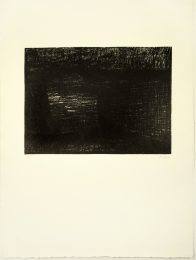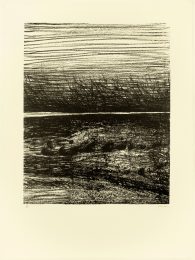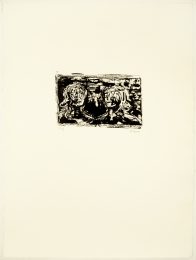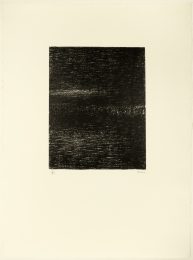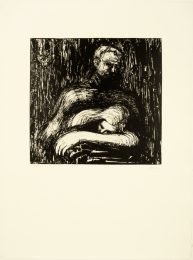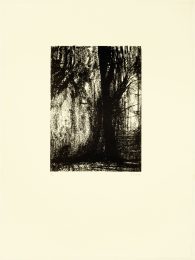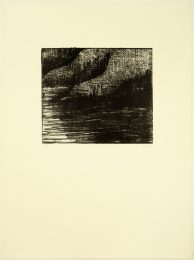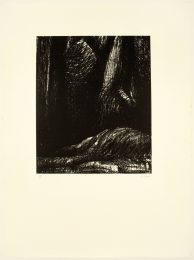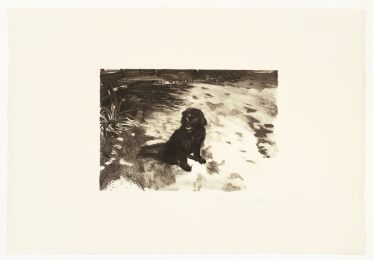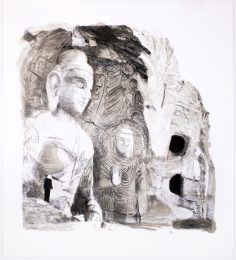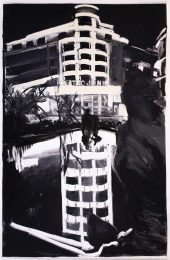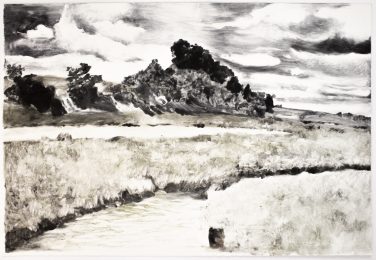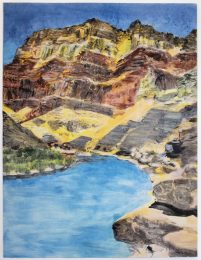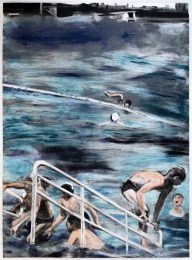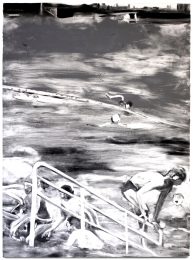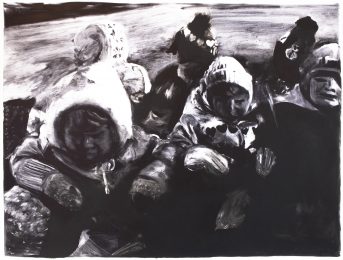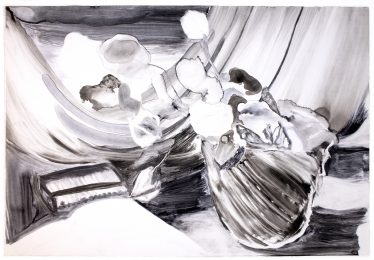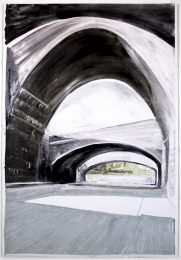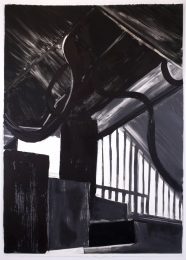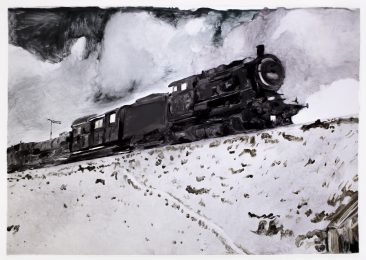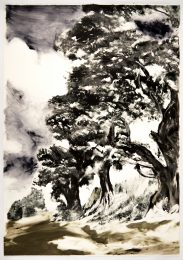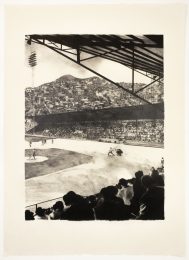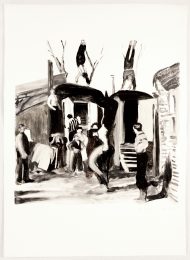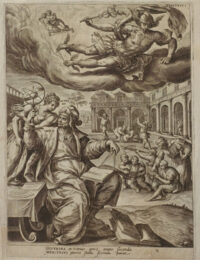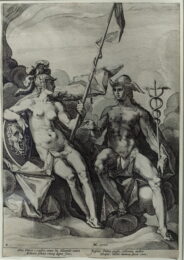Details — Click to read
This tender Marc Chagall etching illustrates La Fontaine’s fable The Fox and the Grapes, part of Chagall’s portfolio and book of illustrated fables Les Fables De La Fontaine (1952).
Via Goldmarkart: “By the late 1920s, Ambroise Vollard – dealer, collector, publisher and defender of French avant-garde artists – had become one of the most famous figures in the contemporary art world. Having published, marketed or publicly supported the likes of Picasso, Matisse, Gauguin and Van Gogh, artists whose innovative works pushed against the conservative cultural values of their time, Vollard’s opinion was deemed both important and controversial by French arbiters of taste.
Vollard commissioned Chagall’s etchings to accompany La Fontaine’s Fables after meeting the young artist for the first time at his studio on the Avenue d’Orléans in 1923. Vollard’s first commission – illustrations for Gogol’s Dead Souls established a close working relationship between the pair which would last until his sudden death in a car accident before the start of World War II. Work on the Fables began just a few years after their first acquaintance, though it would be decades before they were released to the public.
Chagall – being both a ‘romantic’ and a Jew – was deemed by conservative critics an inappropriate choice to illustrate this comparatively ‘classical’ work, Vollard’s personal endorsement coming under intense fire from staunch traditionalists in an ongoing debate that ended up in the Chamber of Deputies.
When asked by the clamoring chamber Why Chagall?, Vollard’s response was short and direct: Simply because his aesthetic seems to me in a certain sense akin to La Fontaine’s, at once sound and delicate, realistic and fantastic.
Chagall began by painting preparatory gouaches which were to be translated to the etching plates for printing. Upon realising that even the master printers charged with the task could not match the gradations of tone he desired, Chagall elected to prepare the etchings himself, using a drypoint technique to work his designs directly into the metal plates.
Work continued on the etchings from 1928-31, more than twenty years before they were issued. Vollard was often difficult to work with, juggling multiple projects with other artists at once, and through correspondences with friends Chagall betrayed his frustration with the delay in publication: “I finished the books, Dead Souls and La Fontaine long ago, but Vollard, of course, procrastinates; such is his nature… He’s very difficult, Vollard. But nevertheless I hope.”
The variety of images in the illustrations for the Fables is astonishing, as is the range of tones brought out by Chagall’s thickly bitten lines. Throughout the suite, scenes rarely share direct parallels with the text, Chagall instead choosing to try and capture the essence of each moral tale, with an emotional range that reveals the cruelty and the melancholy as much as the ease and the joy of La Fontaine’s stories: in one plate, a dark wolf holds the limp body of a reddened lamb in its mouth; in another, a farmer treads a path through the corn beneath the glorious yellow orb of a sun.
Widely regarded as one of the great print suites of the 20th century, Chagall’s Fables etchings were finally published in 1952 in an edition of just 200, with 85 special sets which were hand-painted by Chagall himself (pictured above). An enduring series which embodies the humanity and the humility that is so typical of his work, the Fables remain one of Chagall’s – and indeed Vollard’s – most treasured endeavours.”
The Fox and the Grapes, 1927/1930 from La Fontaine’s “Fables” (1952): pl. 35
etching and aquatint in black on wove paper
plate: 29.7 x 23.7 cm / 11 11/16 x 9 5/16 in.
sheet: 41.8 x 33.4 cm / 16 7/16 x 13 1/8 in.
signed copy aside from the edition
Cramer books 22
C. Sorlier, Marc Chagall et Ambroise Vollard, Editions Galerie Matignon, Paris, 1981, p. 74-123 (another copy illustrated).

